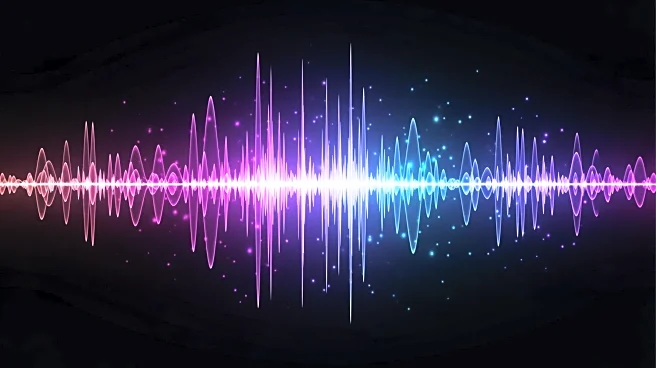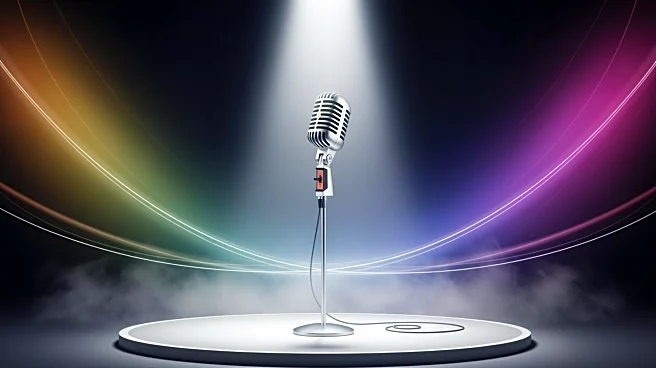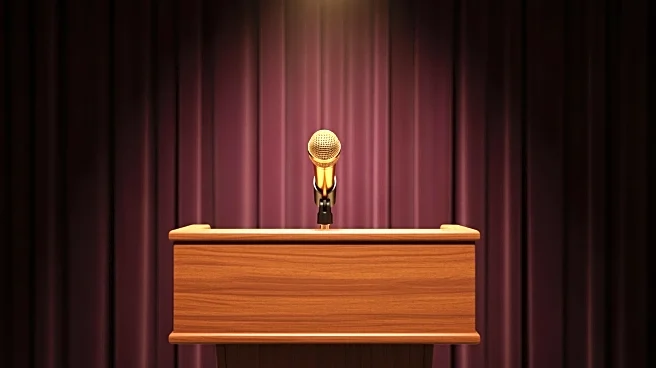What is the story about?
What's Happening?
President Trump has recently expressed a shift in his stance towards the ongoing conflict in Ukraine, signaling support for Ukraine in his address to the United Nations assembly. During a meeting with French President Emmanuel Macron, Trump voiced disillusionment with Russian President Vladimir Putin, stating that his previous relationship with Putin did not aid in resolving the conflict. Trump further emphasized that Putin's failure to secure a victory in Ukraine is detrimental to Russia's image. Additionally, Trump suggested that NATO countries should consider shooting down Russian aircraft that violate their airspace, a situation that has been occurring with increasing frequency.
Why It's Important?
Trump's apparent change in position on Ukraine is significant as it may influence U.S. foreign policy and NATO's approach to Russian aggression. European leaders have expressed cautious optimism, hoping that Trump's support could lead to stronger international backing for Ukraine. However, there remains skepticism due to Trump's history of unpredictable policy shifts, which could affect the stability of alliances and the strategic response to Russia's actions. The U.S. stance is crucial in shaping the geopolitical landscape and ensuring the security of European airspace.
What's Next?
European leaders and NATO allies are likely to closely monitor Trump's actions and statements to assess the consistency of his support for Ukraine. Diplomatic engagements and strategic discussions may intensify as stakeholders seek to solidify a unified response to Russian provocations. The potential for increased military cooperation and defense measures could be explored, depending on the U.S. administration's follow-through on Trump's recent statements.
Beyond the Headlines
Trump's shift may also reflect broader geopolitical dynamics, including the evolving U.S.-Russia relations and the impact of domestic political considerations on foreign policy. The ethical implications of military actions, such as shooting down aircraft, could spark debates on international law and the rules of engagement. Long-term, this development might influence the balance of power in Eastern Europe and the future of U.S. involvement in global conflicts.















